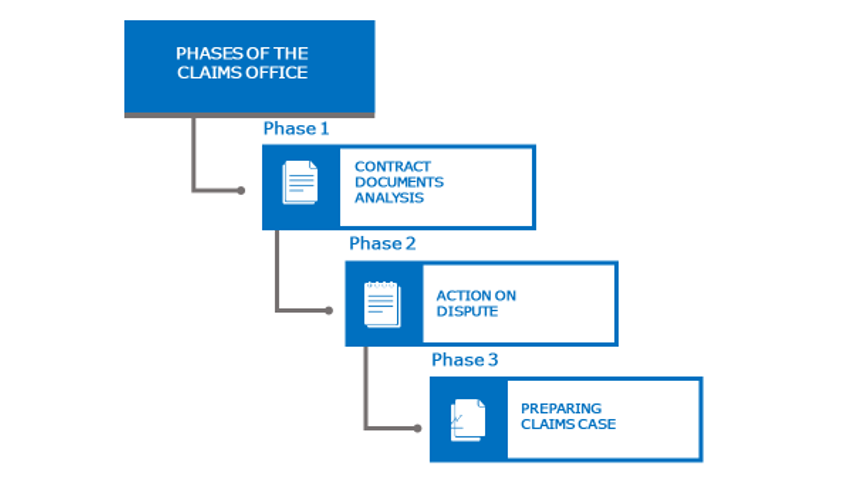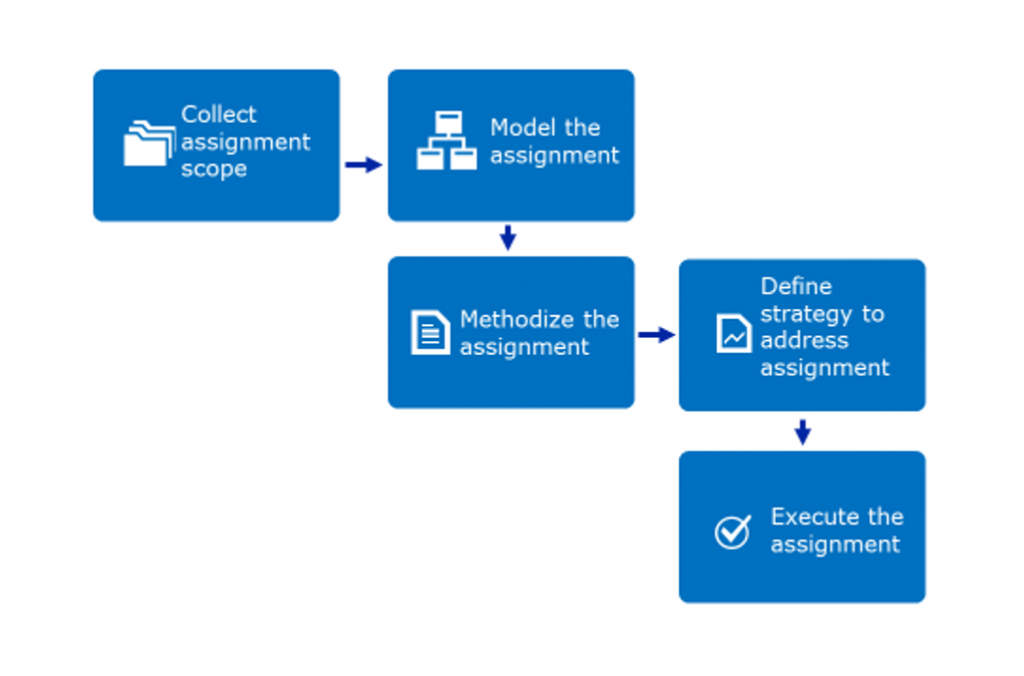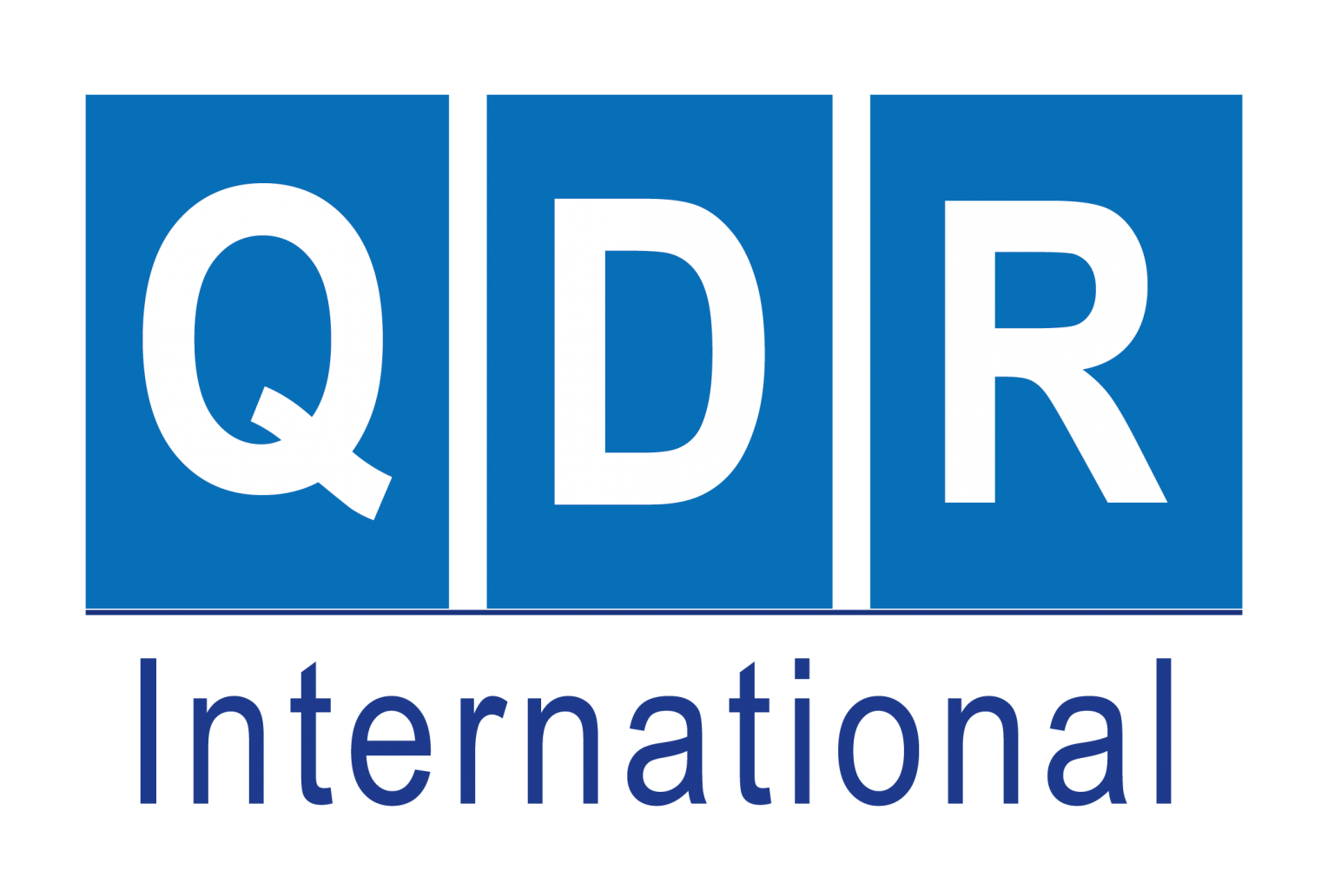QDR provides contract oversight based on an innovative approach to the management of contract claims that emphasizes the early detection of claims during the execution of the contract, and includes processes to plan, identify, analyze, respond, control and manage Claims risks, evolving from a traditional vision of “Resolving a Claim” towards an intelligent vision of “Preventing a Claim”.
Change is inevitable on complex projects, and plans must be dynamic. Good claims management is also a dynamic process during contract execution, including disputes prevention, mitigation, and timely resolution through contractual processes. QDR recommends the establishment of a Claims Office to provide ongoing oversight and on-call services during the execution of complex projects.
Most of the Claims that arise during the execution processes of the contracts are the manifestation of unresolved disputes. Consequently, to better mitigate / control the occurrence of Claims, it becomes essential to collect information and outline the strategy of how to address and prevent the emergence of these disputes.

QDR applies proven and mature methodologies to quantify and value the costs of the materials that impact the price / term of a Contract. Common services include review and analysis of the baseline plan, identification and management of risks and relevant issues, review and analysis of updates, productivity analysis and change orders negotiation support.
QDR work with the best practices for claims avoidance/minimize controversies during contract execution and provide an efficient path for the negotiation and resolution of cost and schedule variances associated with unforeseen events.
The Claim Office is made up of people not inserted in the daily contingency, where the urgent does not leave room for the daily work of prevention and control: is a systematic process to plan, identify, analyze, respond and control (manage) the disputes of a Contract.
CLAIMS AND EXPERT WITNESS
Our focus is on construction Claim contracts and construction Expert Witness for commercial arbitrations contracts, in projects in the mining, energy, oil and infrastructure industry. Regardless of the size and complexity of the contract, it is essential for any analysis, to rely firmly on a thorough review of the facts, evidenced primarily by updated and complete records.
The key to the successful delivery of reliable and objective advice in the context of the services offered by QDR, is the clear and firm knowledge and understanding of both theoretical and practical aspects of the contractual processes at the center of the dispute, as well as external factors that may be relevant for the analysis. Once that is established, a solid understanding of all the facts relevant to the analysis of deviations is crucial, both in the Scope, Schedule, and Costs, expressing those facts in a technical report in a clear, forceful and concise manner.
Importance of defining the scope of expertise witness report
It is essential to fully understand the scope of the assignment: important the art of the client to know how to narrate factual, well-founded and objective facts. Once the scope and objectives of the Consultancy have been fully collected, QDR creates and refines very well “the ad-hoc model”, its associated methodology, the deliverables and documents required to address the assignment.

Sustain damages
Identify and justify contract gaps, which could impact costs / time, for which some mechanisms are applied such as: Baselines (Documentary, Bidding / Execution, Contract, Organization and Schedule), Recommended Practices ad-hoc of the AACE, Position of the Client, Expert Judgment.
Value damages
Quantify the costs of the materials that impact costs / time, for which techniques, tools or methodologies such as: Quantity Measurement, Cost Estimation, Legal Procedures according to Contract, Programming Analysis, Expert Judgment are applied.
The Expert Witness Credibility
QDR works for the Court together with the Lawyer and the Party: “Our duty to give the best opinion, is a duty towards the Court”
The first objective of the expert witness is to be credible in front of the court. The credibility is built from the moment of the definition of the work scope: “The best expert witness is not the one who tells you what the party wants to hear, but the one who convinces the court.”
Early expectations management: We not take on assignments where there is already a prior calculation of the party, not focusing on assessing how reasonable the party calculation is.
The expert witness has to defend his independence and own his conclusions: critical aspect of credibility.
In international arbitration practice, there is talk – with distrust – of overly biased experts, such as “hired guns”.
The Quality of the Expert Witness Report
According to QDR, it is based on a) Rigorous work, b) Experience on what will be pronounced), c) On the application of general acceptance methodologies that can be contrasted and valued by a contradictory expert witness or by the court (an expert witness report of the party will be subject to contradiction), d) In the transparency and reproducibility in the calculation bases that it has used in application of that methodology, so that it may be subject to contradiction and -a when assessing the opinion or giving an alternative calculation-, the contradictory expert witness will have tools to reproduce in our words, that calculation, and give an alternative vision, e) the reputation and credibility of the experts witness and f) In not accepting all hypothesis, or all the calculations that are offered: not to defend “suicidal” approaches, because the pressure of the part is inconducent.
Once the lawyer has decided who the expert witness (who believes is going to meet his expectations) will be, he has the obligation to work with him, hand in hand, but respecting his independence: the expert witness must defend his independence, because that will give him credibility and It will help for the Arbitrator to make conviction that report designated by the party.
No Demand is equal to another: no Expertise Witness Report is equal to another
Since, like each demand, expertise witness report or claim, they are unique, singular and different, the possibility that some is equal to another, is practically impossible, then the obligation to show the lawyers and clients, that the expert witness collected the scope and objectives of the expertise witness report perfectly well, by then fine-tuning the model, methodology, deliverables and documents that are required to develop the assignment: this MAKES a great difference in the strategy to address the expert witness report.
Balance between the need for control of the lawyer and the appointment of the expert witness, with the fact that expert witness must start from objective bases in which he feels that he is doing a job he can defend.
Appointment of an expert witness to provide improved understanding on the assignment and strenght in his technical offer presentation, which will meet the expectations of the lawyer and who also understands that the lawyer does not work for the court: he works for the benefit of his client.
Set the starting point: the lawyer’s art to narrate things in a way that benefits the party He is defending, so that the expert witness understands the scope of the expert witness report and which are the expectations of the lawyer.
Full access to information: availability of formal, managed, traceable and searchable information.
Constant and permanent joint work lawyer-party-experts witness, respecting the independence of the expert witness: start-up meeting, alignment meeting, and clarification meetings, as needed.
The selection and early involvement of the Expert Witness and his full access to information
Initial contact to assess the strength of the matter: full access to documentation
Do not extra limit the scope of the expert witness report, for reasons of rigor, methodology and credibility.
Copyright © 2015 Asesorías, Consultorías y Servicios QDRclaims SpA. La información contenida en este sitio es de propiedad QDRclaims, y su reproducción será permitida toda vez que sea citada la fuente.
